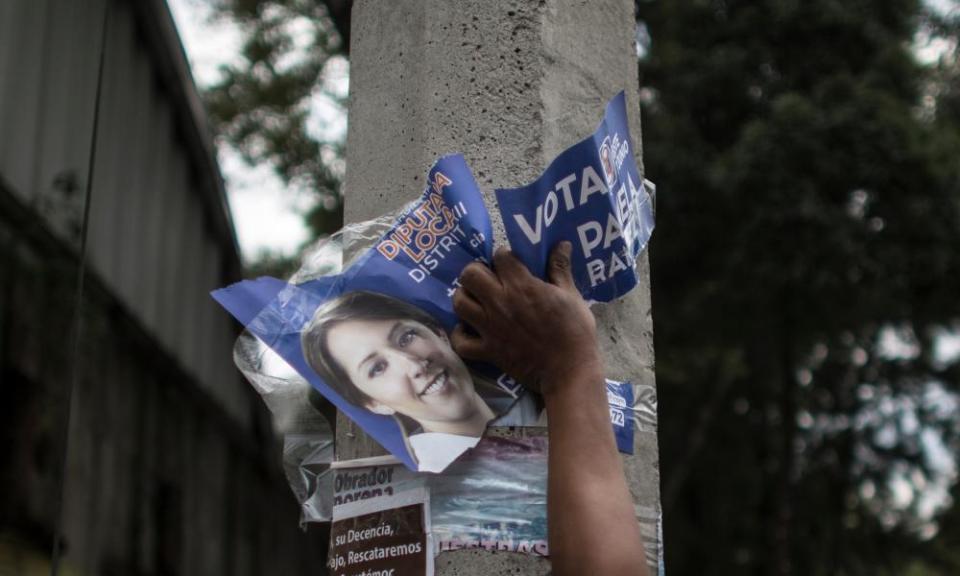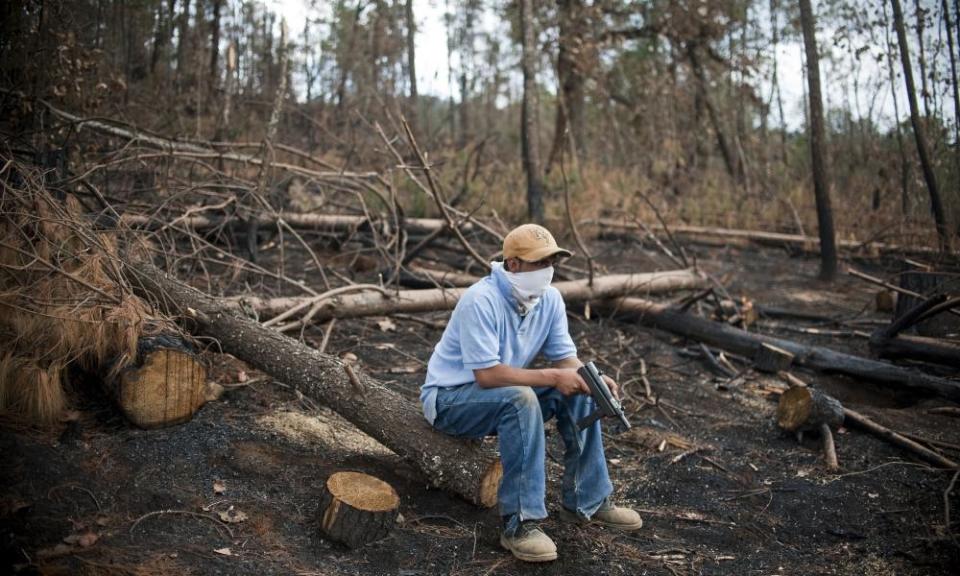The Mexican indigenous community that ran politicians out of town
Cherán, in the violent state of Michoacán, will stand apart from Mexico’s electioneering season, having tackled corruption and exploitation by banishing political parties, police and gangsters

All across Mexico, political billboards are springing up and candidates are hitting the streets, as campaigning starts for elections to pick a new president, renew the congress and replace hundreds of state and local officials.
Everywhere, that is, except for one small corner of the violent western state of Michoacán, which has found a simple solution to the vote-buying and patronage which plague Mexican democracy.
The indigenous Purépecha town of Cherán threw out all political parties after a popular uprising in 2011 – and it doesn’t want them back.
“The only thing the parties have done is divide us,” said Salvador Ceja, Cherán’s communal lands commissioner. “Not just here – in the entire country.”
Presidential campaigns officially kicked off at the weekend, and polls put the left-leaning populist Andrés Manuel López Obrador – ahead of his closest challenger by double digits.
The elections come amid widespread despair at the country’s worsening security crisis and disgust at political corruption. Antipathy toward political parties runs strong in Mexico: a recent survey found they were the least-trusted institution in the country.
But Cherán has taken its contempt for parties to an extreme.
Much of that antipathy can be traced back to the situation in the early part of the decade, when the surrounding area was dominated by illegal loggers, who clearcut local forests and hauled out dozens of truckloads of logs each week – with the protection of a local drug cartel, and the collusion of corrupt police and local politicians.
Eventually, the townspeople decided they had enough. Early on 15 April 2011, local residents ran off the loggers and blockaded the town. Then they kicked out the mayor and banished political parties, arguing that infighting was what had allowed the town to fall into crisis.
Constant intrigues in the main political grouping meant that the villagers could never come together to confront major problems – such as the illegal logging – said Pedro Chávez Sánchez, the head of the 12-member council that now governs Cherán.
The council, which is renewed every three years, was formed after the 2011 uprising and eventually ruled constitutional by Mexico’s supreme court.
Neighbourhood assemblies will select a new council on 1 July – the same day as the presidential election. But no ballot boxes will be installed in Cherán, meaning that anyone wanting to vote for president will have to travel to neighbouring communities.

“We can’t put a project like this at risk in order to participate” in the federal election, Chávez said. “If we let in an election like this, with polling stations and all that accompanies that, the parties are going to want to get back in here.”
Political parties have occasionally attempted to campaign in the town, only to be escorted out by the local ronda – the citizen-run security force formed after the uprising.
Instead of party publicity – ubiquitous in small Mexican towns and villages – walls in Cherán, are emblazoned with murals invoking the Mexican revolutionary Emiliano Zapata or denouncing political parties.
“Asshole parties,” reads one. “Cherán is not a toy.”
Before the uprising, residents allege, local politicians not only turned a blind eye to drug trafficking and extortion, but financed their campaigns with illegal logging and attempted to seize control of common lands.
“All the previous authorities belonging to political parties, every time one them finished their term, they’d take everything with them,” said Ceja.
Academics studying Cherán say the new council has largely contained corruption. Council members are paid modestly, and held to account by the neighbourhood assemblies, said Benjamín Hernández, a sociologist at the Centre for Research and Higher Studies in Social Anthropology (Ciesas), who has studied Cherán.
The community has also had success protecting the environment and reforesting the region.

Michoacán is one of Mexico’s most violent regions, but local officials say that not a single kidnapping or extortion attempt has been reported since the uprising.
“[Cherán’s] main achievement has been peace,” said Hernández. “It has the lowest homicide rate in all of Michoacán – and maybe all of Mexico outside of [the south-eastern state of] Yucatán.”
In a country where drug-fuelled violence and political corruption are reach ever-greater extremes, Cherán occupies an almost mythical place in the popular imagination as a rare success story.
So the town was particularly shaken by the murder in January of Guadalupe Campanur, 32, whose body was found just outside the municipality.
Campanur was one of the first women to join the ronda and actively participated in neighbourhood assemblies. Initial reports suggested that she had been targeted for her work on ecological projects, but friends and community officials said she was not in a leadership position. State officials say a suspect has been detained.
And despite the success of the town’s political project, it is not insulated from outside forces: regional political parties are reportedly trying to get sympathisers elected to the council.
Local activists are insistent, however, that they will not be allowed to return to Cherán
“Our project,” Ceja said, “is for 30 years.”
